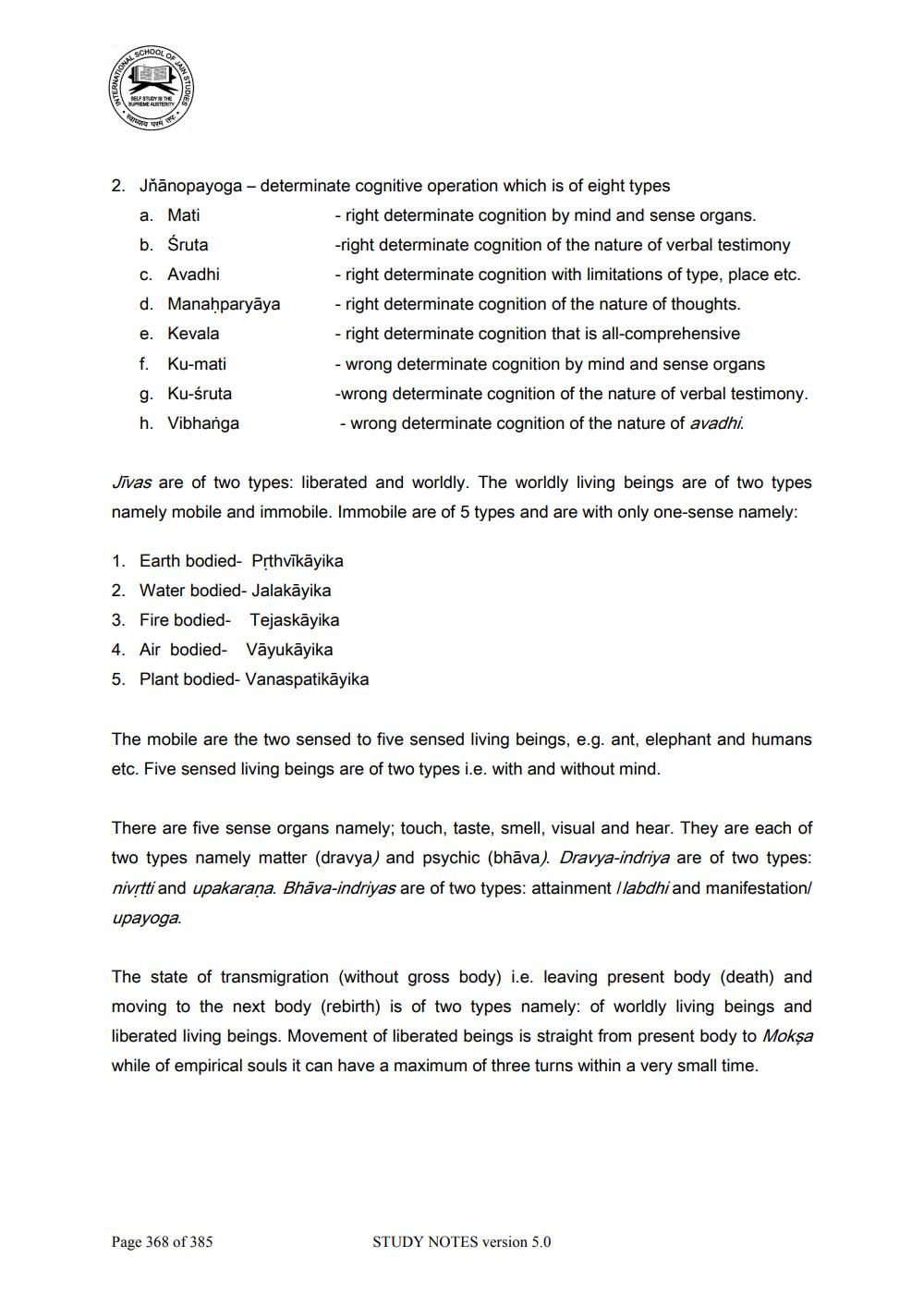________________
INTERNATION
SCHOOL
OF
AN STUDIES
SELF STUDY IS THE
SUPREME AUSTERITY
पाध्याय परम
2. Jňānopayoga- determinate cognitive operation which is of eight types
a. Mati
b. Śruta
c. Avadhi
d. Manaḥparyaya
e. Kevala
f. Ku-mati
g. Ku-śruta
h. Vibhanga
- right determinate cognition by mind and sense organs. -right determinate cognition of the nature of verbal testimony - right determinate cognition with limitations of type, place etc. - right determinate cognition of the nature of thoughts.
- right determinate cognition that is all-comprehensive
- wrong determinate cognition by mind and sense organs -wrong determinate cognition of the nature of verbal testimony. - wrong determinate cognition of the nature of avadhi.
Jīvas are of two types: liberated and worldly. The worldly living beings are of two types namely mobile and immobile. Immobile are of 5 types and are with only one-sense namely:
1. Earth bodied- Prthvīkāyika
2. Water bodied- Jalakayika
3. Fire bodied- Tejaskäyika
4. Air bodied Vayukayika
5. Plant bodied- Vanaspatikāyika
The mobile are the two sensed to five sensed living beings, e.g. ant, elephant and humans etc. Five sensed living beings are of two types i.e. with and without mind.
There are five sense organs namely; touch, taste, smell, visual and hear. They are each of two types namely matter (dravya) and psychic (bhāva). Dravya-indriya are of two types: nivṛtti and upakarana. Bhāva-indriyas are of two types: attainment /labdhi and manifestation/ upayoga.
The state of transmigration (without gross body) i.e. leaving present body (death) and moving to the next body (rebirth) is of two types namely: of worldly living beings and liberated living beings. Movement of liberated beings is straight from present body to Mokşa while of empirical souls it can have a maximum of three turns within a very small time.
Page 368 of 385
STUDY NOTES version 5.0




